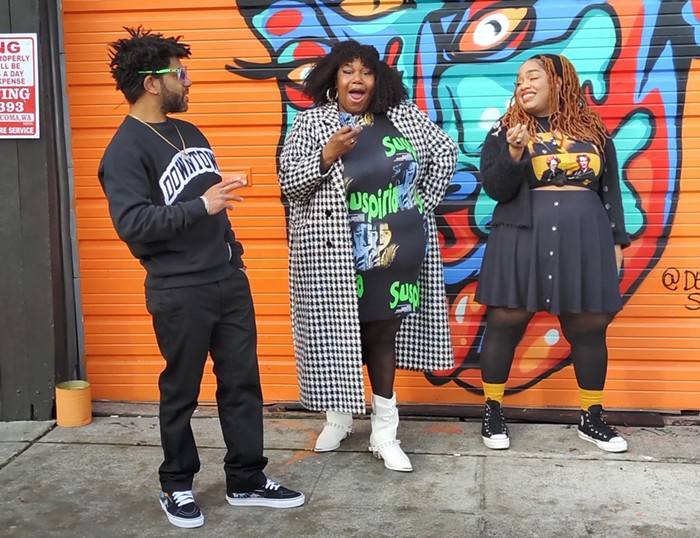
Venerable DC think tank the Brookings Institution has weighed in on the weed world's favorite bogeyman: "Big Marijuana." Their findings? Big cannabusiness is no big deal, man.
The report, titled "Worry about bad marijuana—not Big Marijuana," isn't exactly news to anyone following the industry—we all know corporatization is coming in some form—but it is a decently thorough consideration of the issue. The main takeaway is this: Crowing about the dangers of Big Marijuana does very little to ensure that it will be well-regulated when it finally arrives.
Indeed, as an example of this, the report specifically calls out the pioneering legal states for not allowing out-of-state investment.
"A strong temptation for states that legalize cannabis is to protect their marijuana markets from out-of-state investment," the report states. "Initially Colorado, Washington, and Oregon did exactly that. Ostensibly the goal is to shield small local producers from Big Marijuana, but in fact, critics plausibly charge, the result is more like cronyism, resulting in a system that favors a handful of locally powerful incumbent players.
"Moreover, industry observers in Colorado said that the use of proxies and 'half-fake owners' allows unscrupulous actors to circumvent the rules while depriving regulators of visibility into who actually controls cannabis enterprises."
The ownership transparency question is an important one. While small producers fail left and right in Washington, the rate of license dissolution is suspiciously low.
"The number of discontinued businesses for Producers and Processors is pretty low, only 10 actually," Mikhail Carpenter, a spokesperson for the Washington State Liquor and Cannabis Board (WSLCB), wrote to me in an email. "You are on the right track regarding what happens to these businesses, most of them sell their business rather than go under. The purchasing entity assumes the license going through the same licensing process."
License sales, with their requisite WSLCB review and background checks, are no big deal. But not every failed license gets sold. There's a more sinister version of this transaction: A more powerful, well-capitalized licensee approaches a failing producer, offers to save the business (usually with non-cash resources, like free consulting and artificially low-rate equipment lease agreements), and then demands a permanent, fixed-price, exclusive contract for that producer's products in return.
The failed producer keeps their license in their name and still gets to make some money, but no longer calls the shots. The third-party licensee hasn't invested any money or bought anything, merely consulted and provided equipment, so they don't qualify as a true party of interest. Many failing producers take the deal because, when faced with a choice between losing their shorts and losing control of their company, no one's tryna get pantsed.
While some of these people are motivated by greed—the deal was most recently described to me by a gregarious gentleman at the Arcview Investor's Conference who made little effort to hide his mob ties—plenty more are just successful businesses that lack a more straightforward outlet for growth.
The WSLCB knew what the Brookings report posits—that big business is actually easier to manage and regulate in many ways—from day one. Instead of licensing a few larger entities, they went with a model allowing for more and smaller producer/processor licenses at the behest of... public commenters afraid of Big Marijuana. Sigh.
"When the Board did its outreach prior to writing the rules one of the most common comments, if not the most common, was to allow as many people as possible to participate and not limit the amount of producers," wrote Carpenter. "From a regulatory standpoint it would have been easier to license a lesser number of larger growers however, in part, due to the volume of public comment received the Board chose to license a larger number of smaller grows."
Damn, really? Like, I know the idea of a thousand Farmer Toms all jumping in the weed game and making an honest living and growing a long white beard and living happily ever after is great and all, but it has little to do with the functional realities of the Washington cannabis industry. I'm all for small business in pot—high startup costs are one of the pillars of institutionalized economic racism in the cannabis industry—but it's equally painful to see those little fish thrown into a kiddie pool (Washington's artificially limited market) with a few hungry sharks. The industry as it stands is a far cry from the idyllic free market in which small businesses might actually stand a chance. Currently, it's more like the Tilt-o-Whirl at the fair, but instead of "you must be at least this tall to ride this ride," it's "your pockets must be at least this deep."
The Brookings report concludes with this apt warning: "Government, industry, consumers, activists, and their
communities should set clear goals about what they want the marijuana industry to do and what they do not want it to do. The role of public policy is to develop regulations, pass laws, levy taxes, and foster incentives with an eye toward avoiding specific harmful practices. Regulatory boundaries should target corporate behavior, not corporate size."
Call me crazy, but it might be wise to set those clear goals now, while we're only two years in, instead of later, when we've got an even larger knot of Christmas lights to untangle.















